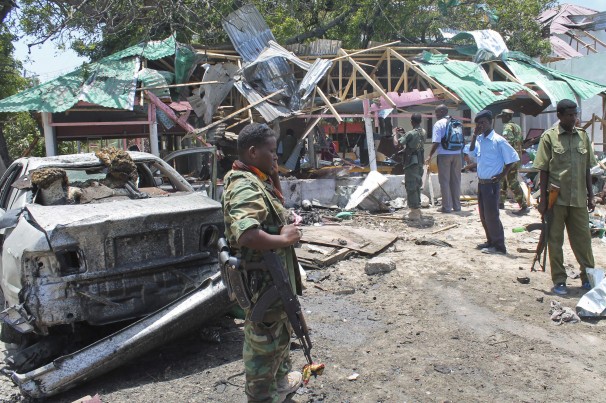by Michael Yoakum
Impunity Watch Reporter, North America
WASHINGTON, D.C., United States – Secretary of State John Kerry said Saturday that the number of countries ready for military intervention in Syria is now in the “double digits.” Kerry spent the better part of last week trying to bolster support for intervention with G-20 countries and members of the Arab League.

Kerry’s mission will likely be aided by 13 videos released Sunday by the Senate Select Commission on Intelligence which purport to depict the deaths of victims in the August 21 sarin gas attack in Damascus. The videos, which are posted on the Senate committee’s website, show victims of the chemical assault convulsing and foaming at the mouth.
While the United States pushes for supporters in a military response, the international community remains divided on the issue. German newspaper Bild am Sonntag reported Sunday that German Intelligence has doubts about whether Bashar al-Assad gave permission for the August 21 chemical weapon attack.
In an interview with PBS reporter Charlie Rose, Assad told Rose that the United States has no evidence that he ordered a chemical weapon attack on Syrian civilians. Assad refused to confirm whether he had stockpiled chemical weapons, however, he posited that if Syria did have them, they would be under “central control.”
Member nations of the Arab League agreed Sunday that Assad used chemical weapons and recognized that their use crossed an international “red line.” So far, none of the League members have endorsed a US led airstrike against Syrian weapons depots. Kerry said that Saudi Arabia has endorsed airstrikes in private but is reluctant to make a public statement on the issue.
As of Sunday, France alone has publicly backed the US call for punitive military action against Syria.
For more information, please see:
Al Jazeera – Obama and Kerry push case for Syria strikes, as gas attack video released – 8 September 2013
NBC News – Arab League agrees with Kerry on Assad chemical weapons use – but not military action – 8 September 2013
The Guardian – Assad tells Charlie Rose no evidence he is responsible for Syria chemical attack – 8 September 2013
BBC News – Kerry says support for action against Syria is growing – 7 September 2013
The New York Post – With the World Watching, Syria Amassed Nerve Gas – 7 September 2013
Senate Select Committee on Intelligence – Syrian Chemical Weapons Use Videos – (Warning: Contains graphic content)



